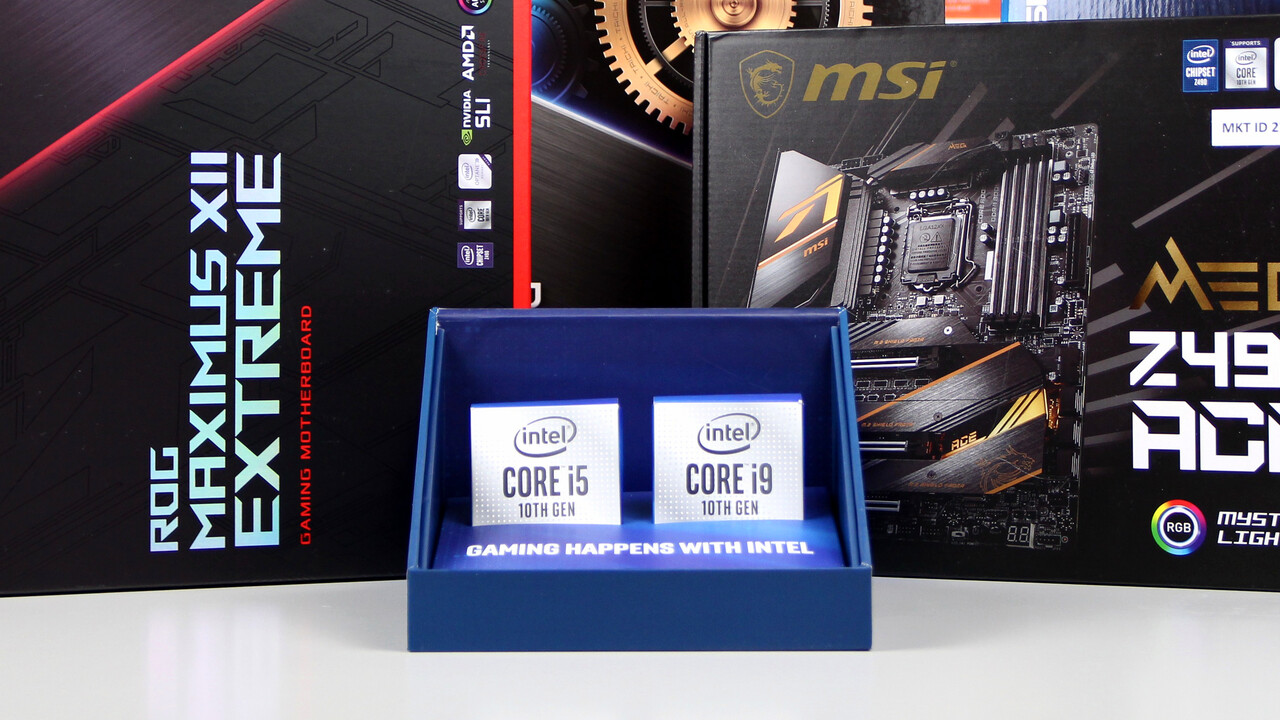Their argument might be lost but I feel you are also missing one point. It's not about 10 cores being the good sweet spot vs 6, 8, 12 or 16.
The fact is that many, many applications like fast "cores/threads" better. So far Skyalke nth iteration at 5+ GHz is still very competitive, and the most of those cores you can get is, d'ho, 10. So yes, 10 cores is a good spot as it will run with that advantage up to 10 threads at once (more is hyper threaded cores that doesn't scale as well), meanwhile a 8700k or 9900k will stop at 6 or 8 with the linear scaling. So unless the applications you are running are all embarassingly parallel those 10 cores will run faster than say a 12 core where each threads performs like a 4.5GHz skylake.
This is a mix of arguments that run very close to circular reasoning. Yes, it has best available ST performance and yes it does scale to 10 core loads without sacrificing light threaded performance in hybrid loads, but the argument that is better than both 6, 8
and 12, 16 cores is a fabrication in which we pick and chose workloads and product properties to arrive at a conclusion: we use lower clocked 6, 8 Skylake cores, we use completely different arch for 12, 16 cores, and then we talk about both lightly threaded and multi-threaded workloads like they both matter as much at the same time. This is the part that I challenge, fabricating a fantasy workload profile because 10900K happens to have the best binned cores and biggest core count in the Intel lineup. There is still a point where having more than 6 core is futile, and there is still a point where having more than 10 cores is relevant.
Back when 8700K showed up the perfect balance was 6 cores, followed by 8 cores with 9900K(S), and now it's 10 cores? What if the ring bus was stretched to it's limits and CML had 12 cores? Where is the point where we draw the line and conclude that a certain number of cores is prosumer material and that prosumer will choose based on experience and specific workload benchmarks, not wide spectrum reviews and/or suppositions made by forum members about what the prosumer needs?
Photoshop is commonly used as example for a professional tool that requires best hybrid performance for best results, and yet I wonder how many of the forum members here understand that this tool has so many use cases with such varying computing needs that declaring a best PC for Photoshop in a vacuum is pointless, like declaring the best PC for programming. You wouldn't even know the memory requirements, let alone CPU core count needs.
The 10900K is a great CPU, Intel engineers did a good job with improving thermal performance to maximize what 10c Skylake can do, but let's face it: the 6c/12t is the benchmark for best consumer performance, and everything above it requires clear considerations about the nature of workloads being used. Otherwise we're talking about winning benchmarks while real-world results might be subject to massive diminishing returns to the point where the common user can barely observe any difference.
Of course the day Zen 3 is released if it performs faster than skylake at any usable speed this arguments falls: more cores and each faster will be better full stop.
Wait until Rocket Lake and the moment when the best sweet spot becomes 8.






